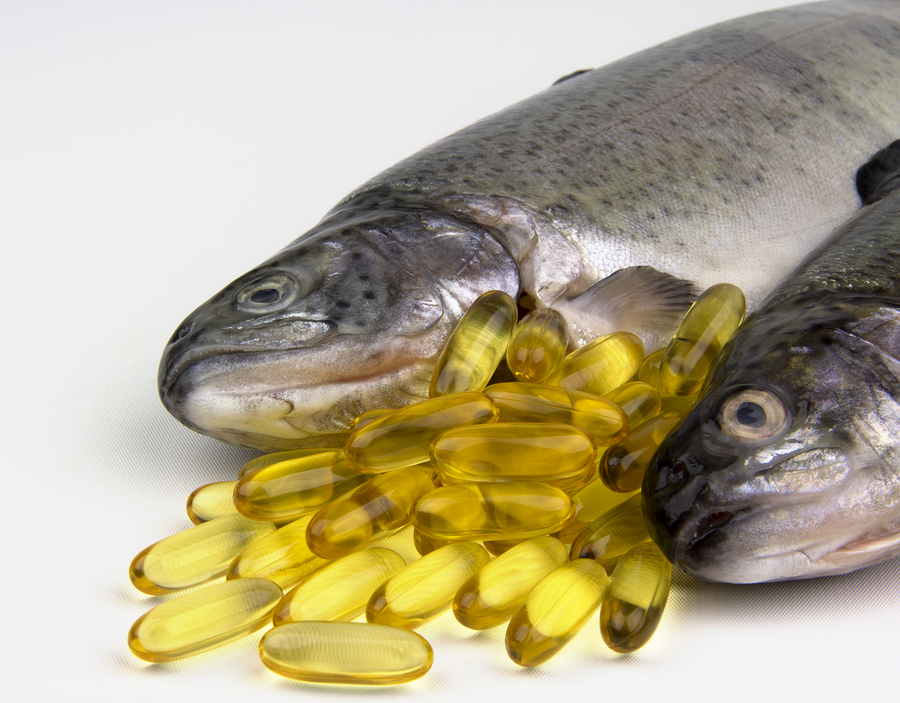A new study from the Copenhagen Prospective Studies on Asthma in Childhood research center in Denmark, in collaboration with the University of Waterloo, Canada has found that fish oil supplements may lower the risk of childhood asthma. However, is it still worth it given the risks in later life?
“The Centers for Disease Control and Prevention (CDC) estimate that 6.3 million children in the United States under the age of 18 – or 8.6 percent of all U.S. children – currently have asthma.
As the CDC report notes, the prevalence of asthma has increased in the U.S. over the last decade, and the disease is currently at its highest level.
The authors of the new study hypothesized a link between the rising numbers of children affected by asthma in Western countries and the low levels of anti-inflammatory omega-3 in their diet. The researchers therefore examined the effect of omega-3 supplements in pregnant women on the risk of wheeze and asthma in their offspring.”1
According to Dr. Greger, there are risks beyond childhood that should make taking the supplements, long-term, a longer conversation:2
It’s been a bad few years for fish oil, as I discuss in my video, Omega 3s, Prostate Cancer, and Atrial Fibrillation. Claims were crushed that the long-chain omega 3s in fish oil—EPA/DHA—would stop the progression of heart disease. Then, DHA was associated with increased risk of prostate cancer and “monumentally” failed to treat macular degeneration. This over-the-top rhetoric sounded a little suspicious, and, indeed, the paper was retracted because the author sells some rival supplement he failed to disclose, but he does have a point.
I covered the fish oil failure for heart disease in my Is Fish Oil Just Snake Oil? video (see below). But, what about the increased cancer risk? Men with the highest circulating levels in their blood of the long-chain omega 3 fat DHA were found to be at higher risk for prostate cancer, though a subsequent compilation of all such studies suggested EPA, the other major long-chain omega 3 in fish and fish oil, may be more closely associated with increased cancer risk. Either way, these long-chain omega 3s have been promoted for prevention of heart disease and cancer. We now know, however, that not only does there appear to be no benefit for death, heart attack, or stroke, there may be an elevation in cancer risk. The general recommendations to increase the intake of these fats should consider its potential risks.
How could eating more fish or fish oil increase cancer risk? Well, there are some industrial pollutants, like PCBs, linked to increased prostate cancer risk, and the “primary source of exposure in the general population is believed to be through diet from fish, meat, and dairy products.” If you do a supermarket survey, the PCBs are highest in freshwater fish and lowest in plant-based foods. Vegans have been tested, and they were found to be significantly less polluted than omnivores of the PCB linked to prostate cancer.
However, the prostate cancer study was done in North America where people don’t eat a lot of fish, and indeed, even the group with the highest DHA levels weren’t that high. So, maybe the confounding factor was meat consumption in general, not just fish. Lower meat consumption may be a reason for the lower rates of prostate cancer in the lower DHA group, as the consumption of well-done meat is associated with an increased risk of prostate cancer, and intake should, therefore, be restricted.
We also used to think omega 3s could protect us from arrhythmias—abnormal heart rhythms, like atrial fibrillation. Millions suffer from the condition, which causes an irregular heartbeat and a higher risk of stroke and death, but fish and fish oil consumption does not appear effective for preventing it or treating it.
Other arrhythmias can be life-threatening and can cause sudden death. Despite initial encouraging results, more recent studies have not only failed to reduce sudden cardiac death with omega 3s, but have actually increased mortality in cardiac patients. For example, men with heart disease advised to eat more oily fish or supplied with fish oil capsules were found to have a higher risk of cardiac death, possibly because of the contaminants in fish, such as mercury. In either case, given the inconsistent benefits and the potential adverse effects, omega 3s must be prescribed with caution and generalized recommendations to increase fish intake or to take fish oil capsules need to be reconsidered.
I was as surprised as you to learn that fish oil doesn’t help with heart disease. I do still recommend taking 250 mg daily of pollutant-free (yeast- or algae-derived) long-chain omega-3’s (EPA/DHA).
In health,
Michael Greger, M.D.











